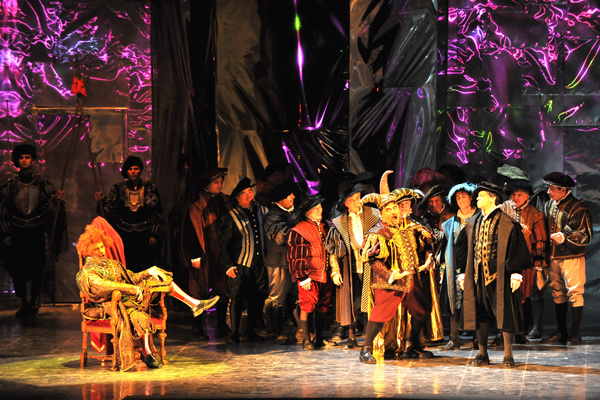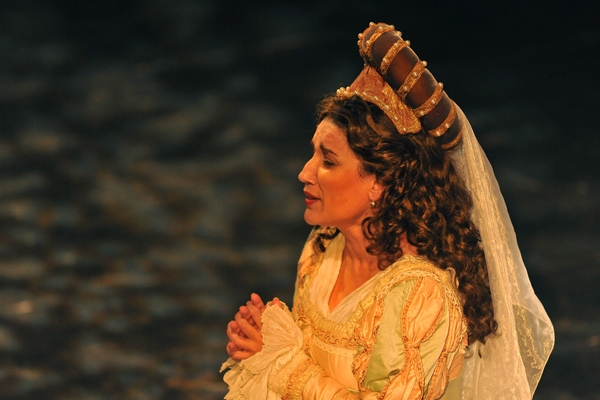Rigoletto as enthralling as ever
5 November 2009
After an 11-year absence, the tragic, woebegone Rigoletto trod again upon the stage of the Astra in Gozo, in two performances last Thursday and Saturday, the former of which is under review here. Rigoletto remains one of Verdi's most popular and widely performed operas.
Its tale of human tragedy retains a magnetic pull upon the imagination and sensibilities, and an interesting production such as this one confirms it. At the end of the day it was to be a triumph for soprano Miriam Cauchi in the leading role of Gilda. She has developed star quality. Singing effortlessly, hers was a fine Gilda, torn between love for a feckless unworthy man and devotion and loyalty to her father. Her acting complimented her singing: she moved with confidence with the appropriately strange mix of demureness and obstinate, generous determination required of her role.
Much depends on Rigoletto if total success is to be registered in this work. There was a novel touch to artistic director Mario Corradi's projection of this character interpreted by Bulgarian baritone Peter Danailov. From Rigoletto's exaggerated limping in Act One, Scene 1, he had the court jester divesting himself of his professional garb, hump and all to reveal an ordinary suffering human being, highlighting his all too protective love for Gilda which is his weakness and eventual undoing.
The revelation worked very well at first but in the end it proved to be less convincing than desired. This to extent that the fine looking and well-shaped Mr Danailov looked not only too young to be Gilda's father and became somebody completely different. Quite apart from this, despite his fine acting and a very pleasant voice Mr Danailov did not muster enough power to project it to the full.
The stark, bare set was juxtaposed by traditional period costumes with Gilda's headdress in Act 1 being much too high and aristocratic for a jester's daughter. While personally preferring traditional props as well, Mr Corradi's did not bother me in the least. Their very simplicity made one concentrate more on the characters and their singing. The licentiousness of the Ducal Court was evoked well enough and speaking of singing, that leaves mention of the remaining leading character, the lecherous Duke of Mantua, sung by Italian tenor Antonino Interisano. The trouble with this singer is that, while his acting is heartfelt, his vocal mobility is not always up to scratch.
Once he is in the top reaches he really projects a most marvellous rich, warm clear strong sound. In his duet with Gilda and the immorally mischievous La donna e' mobile, he was at his best. In the opening Questa o quella and later in Act two there was a bit of a muddle when he was not in time with the orchestra, something quickly recuperated by deft handling under Joseph Vella's baton.
Under Mro Vella's direction the Malta Philharmonic Orchestra was in fine fettle and so was the brief but superb handling of Bulgarian mezzo Emilia Boteva's role as Maddalena. Italian bass Francesco de Grandis as Sparafucile had the right dose of nonchalant menace and hit-man efficiency about him. With one exception, namely Italian bass Lorenzo Ciccioni, all the minor roles were taken by local singers. All these roles were well-handled by baritone Kevin Caruana (Count Monterrone), soprano Elaine Borg (Countess of Ceprano), baritone Kevin Scicluna (Marullo), tenor Frans Mangion (Borsa) and soprano Arienne Gaerty as the venal Giovanna. The courtiers made short shrift of the poor page (Antoinette Camilleri) and Bernard Busuttil announced Monterone's final doom.
Well done all back stage team and one last word but not the least for the Astra Opera Chorus. Trained to nigh perfection by Maria Frendo they performed splendidly, well on cue, mindful of dynamics and equally important they did achieve that particularly Verdian quality required of Verdian male choruses.
Review by Albert G. Storace; The Times of Malta; November 4, 2009

